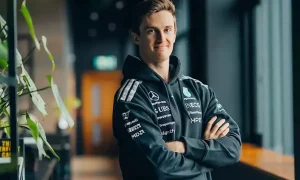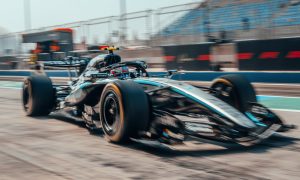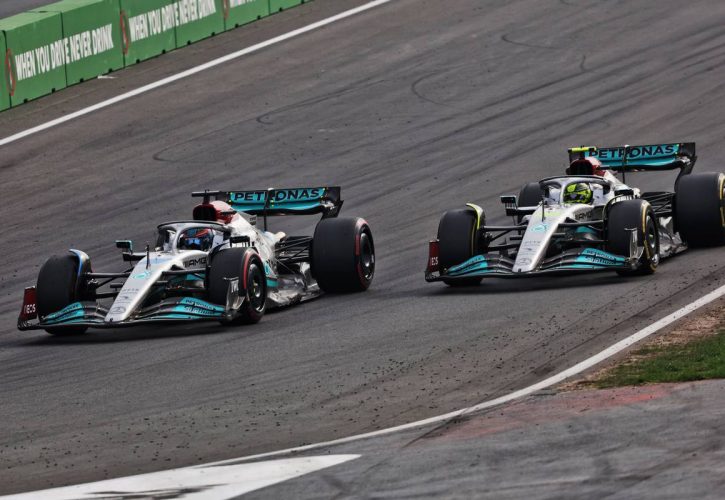
Lewis Hamilton says sacrificing sessions for the sake of better understanding Mercedes' troubled W13 led to his relative deficit to teammate George Russell in the first half of the season.
After a productive winter that offered Mercedes an abundance of optimism on its new-generation silver arrow, the Brackely's squad's sentiment indicator plunged when it rolled out its contender in pre-season testing
While wind tunnel data pointed to sensational downforce numbers, testing unveiled a nasty by-product of F1's new ground effect aerodynamics: porpoising and bouncing.
From the outset, the Brackley squad was on the back foot, its engineers scratching their heads to understand where lie the root cause of its car's predicament.
Hamilton hoped his team's questions would be answered in short order thanks to Mercedes' outstanding engineering excellence. But the complexities and anomalies remained under cover.
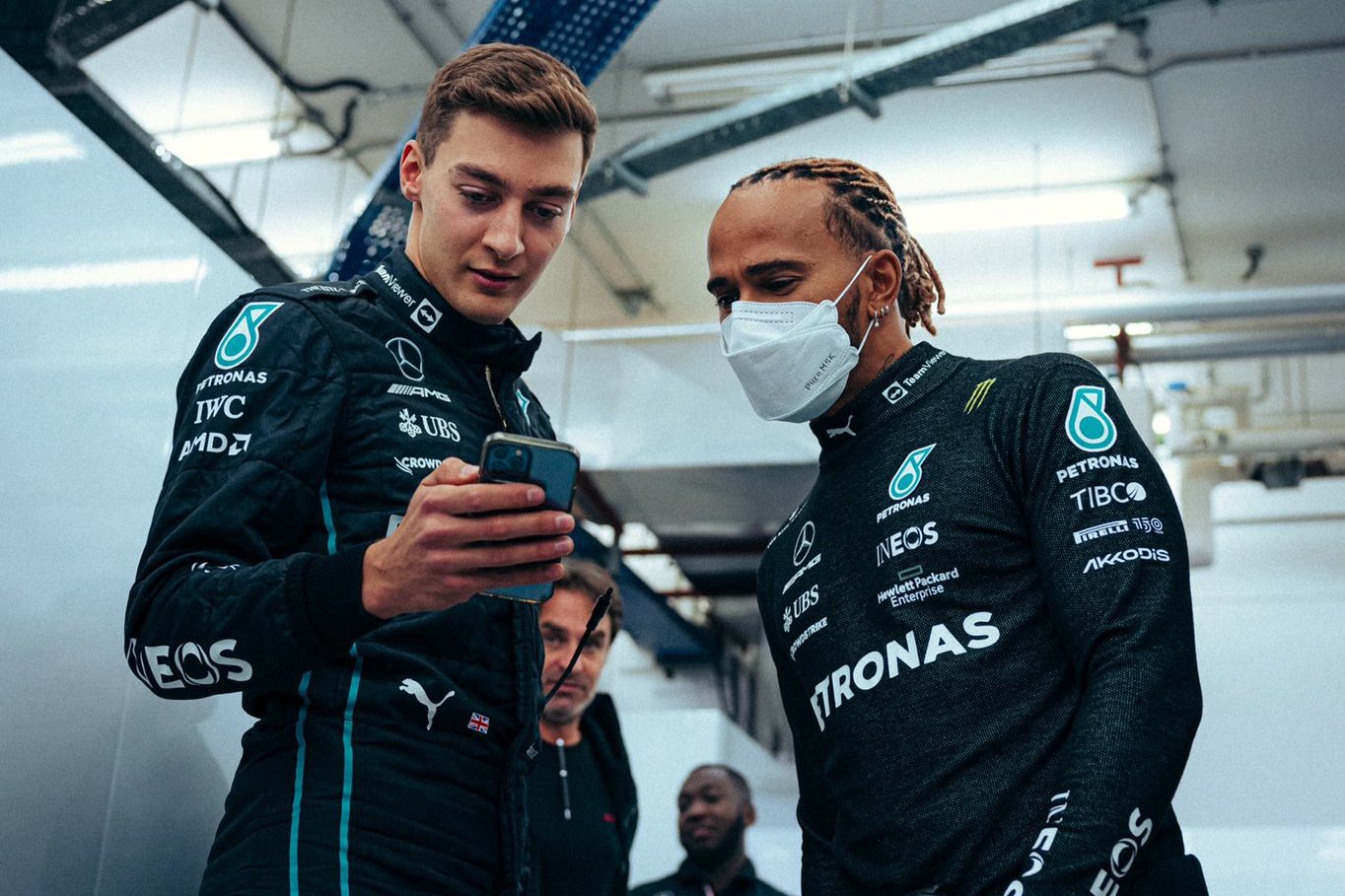
©Mercedes
“It’s been a bunch of different things from the get-go," Hamilton told selected members of the media in Austin.
" Bouncing was the dominant one and the most visible. But the aero characteristics are difficult… the stiffness, the global stiffness of the car to the point where the suspension is pretty useless, stiffer than the tyres.
“[Because of that] the tyres are then squashing and bouncing so we’re bouncing on the tyres as well. And then just aero characteristics.
“Drag is a huge problem for us. When we get to a certain speed that’s when other people are pulling away. It’s when you brake and the front dips and the rear comes up and the aero transfers during that period and when you get on the power.
“It’s different between low and high speed. So many problems. That’s why literally I have tried everything.
Indeed, Hamilton and his crews took it upon themselves to try and unravel their car's mysteries by experimenting and relying on trial and error to improve its performance.
On the other side of the Mercedes garage, Russell focused on making the most of the W13's existing potential.
The two drivers' decided approaches were in the best interest of the team, but individually, Hamilton was perhaps fighting a tougher "problem solving" battle, which inevitably weighed on his performance relative to his teammate.
"I’ve tried every setting you can possibly do," he said. "That’s what I was doing at the beginning of the year.
"The whole idea of performing at your best and getting the best result from each weekend would be nice but I was really about problem-solving.
"I will sacrifice this session or all the sessions to be able to find more data and information for you so that when we go back to the factory they’ve got a better understanding of what’s going on.
"But it ultimately hindered a lot of the weekends."
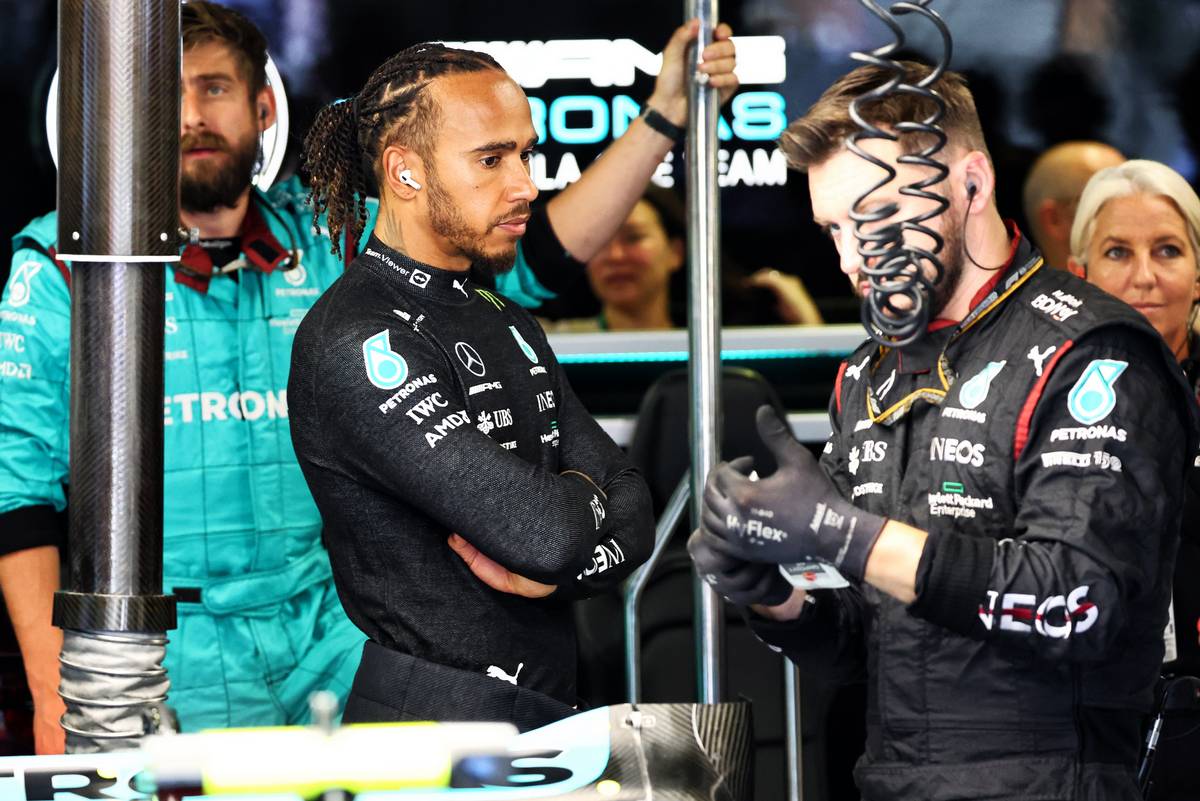
The Briton reckoned that it was only normal for him to handle the task of experimenting given his seniority in the team and vast experience.
“It’s been an unusual year," he admitted. "George is doing a great job. I don’t have any problems with it. There’s no issues in the background with us.
"George and his team don’t experiment the same, obviously. But that’s because I’ve been here for a long time. I have the big, deep conversations with people I’ve been with for 10 years.
"So me and [Andrew Shovlin] can have arguments, constructive arguments. George, it’s his first year with the team so he’s come in and he’s just doing his job to the best of his ability, with very little movement of set-up.
"I’m doing back and forwards here and there, different wings, all these different things and I like that anyway.
"If we come into next year and we have a car that we are much happier with then we can be more focussed on that whole… not having to go crazy with set-ups, then we can have a better battle.
"If he finishes ahead at the end of the season I don’t really feel anything about it; we’re not in the championship. We are fourth and sixth. If it was first and second it’s different."

Since F1's summer break, experimentation has subsided, and sessions have become more straightforward for Hamilton. And he has outperformed his teammate in recent races.
As Mercedes' engineers have finally started to wrap their head around the W13's quandary, improvements have followed. But the random and baked-in nature of the car's issues means that W13 is still a massively difficult beast to tame.
"I described it to my engineers the best I could and said it’s like you are creeping up behind a horse and you’re trying to get as close as possible," he explained.
"Like what’s the point before it kicks you in the face, and you know it’s going to hurt when it hits your face and that’s one of the best ways I can say when you’re trying to lean on the car and it’s snapping and unrecoverable.
"And this car, it’s random."
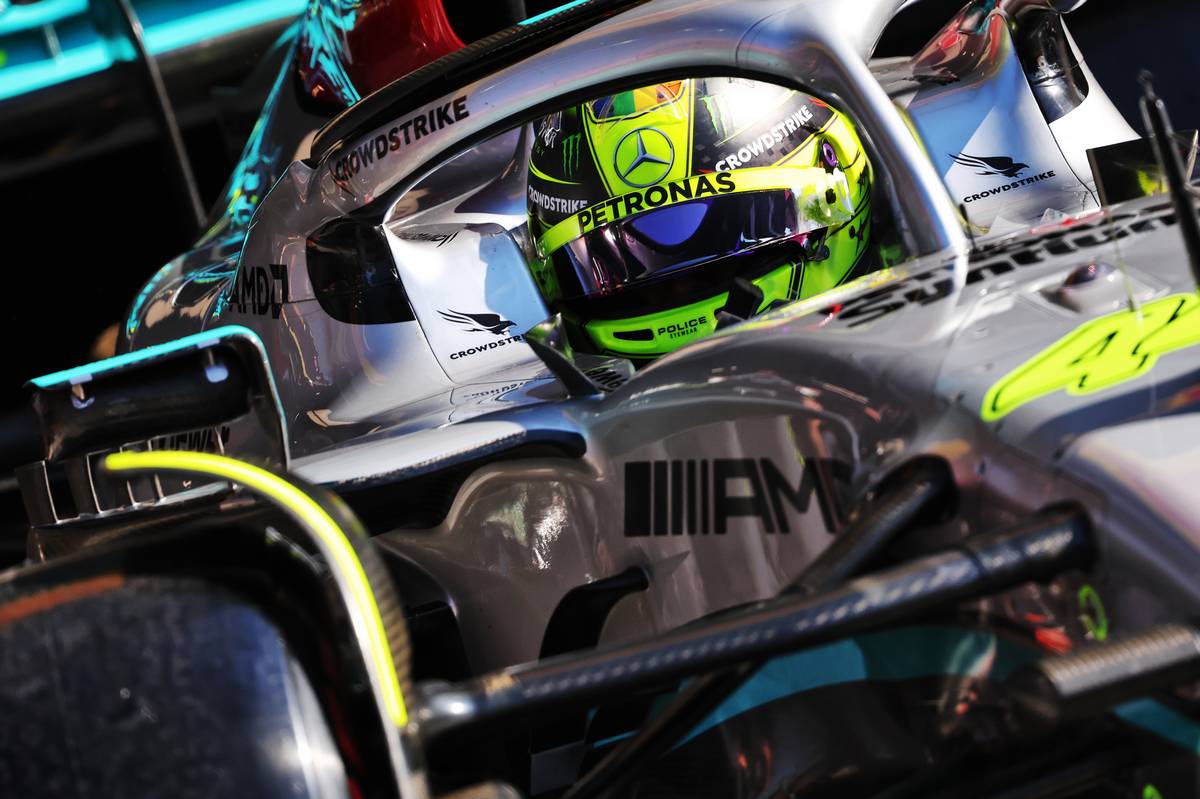
And that painful volatility out on the track has made for a challenging year mentally.
"At the beginning, it didn’t feel too difficult," Hamilton added.
"But definitely it starts to wear down on you because you’re in the hope that you’re going to get back there and then… all of a sudden we start having those races where we get into second and then the next race, the car one weekend is good, then it’s one, two, three, four, not good, then it pops up. So you don’t know.
"You do all the work in the simulator then the simulator’s telling you something different to what you get at the track.
"It’s just a confusing overall year of emotions. You think, the sims are good and the car feels quite good this weekend or the engineers say ‘ok, we’ve got an upgrade that’s worth three tenths’ and you get there and it’s a tenth slower and you know and you’re ‘oh shoot’.
“I think I’ve learned just not to get my hopes up on anything. It’s better to kind of under-expect and if it’s just as good it’s just as good and if it’s better, it’s better. In terms of preparation, I think we’re better now.
"There’s always things to take from the learnings. It’s not like I’ve never experienced a season like this.
"I would definitely say I’ve been better than I was in the other times I’ve had years like this.
"Within the team, within the messaging, geeing people up, I think I’ve been a better team-mate to my colleagues than I have ever before and I think outside, in my outside life, I think I’ve had an even better balance than I’ve had in the past."
Keep up to date with all the F1 news via Facebook and Twitter





